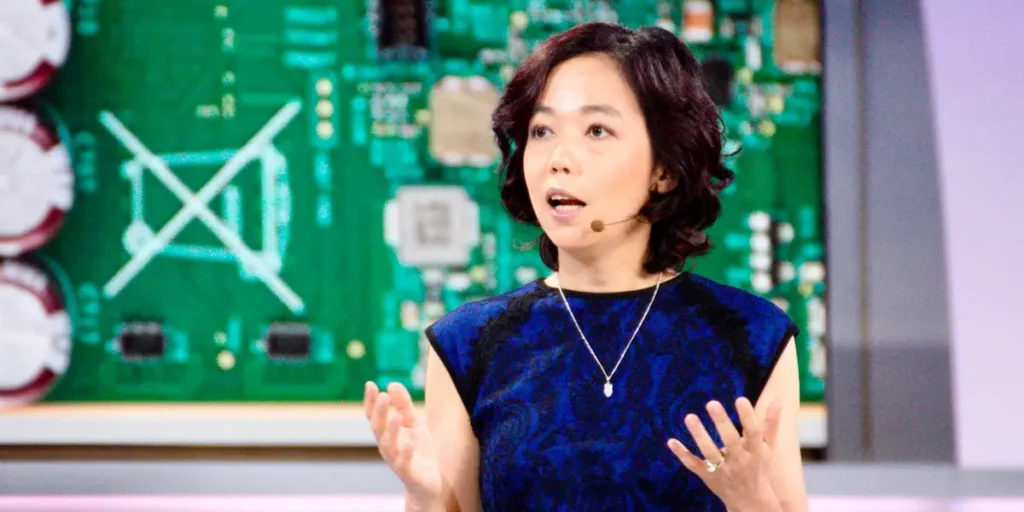Every influential scientist has an origin story — and the “Godmother of AI” is no different.
Fei-Fei Li, a Stanford professor best known for her work on ImageNet, is now the founder of World Labs, a one-year-old AI startup that’s already valued at over $1 billion.
Her start, however, was far more humble.
Li immigrated to the United States from China at the age of 15 and helped her parents run a dry-cleaning business in Parsippany, New Jersey, to make ends meet.
“We were not financially very well off at all. My parents were doing cashier jobs and I was doing Chinese restaurant jobs,” she told Bloomberg in a Q&A. “My family and I decided to run a little dry cleaner shop to make some money to survive.”
Li said she likes to joke that she was the “CEO.” She ran the shop for seven years, from when she was 18 until the middle of her graduate studies.
According to her LinkedIn profile, Li attended Princeton University for college, keeping her close to her parents’ shop. Later, while pursuing her Ph.D. at Caltech in California, she continued to run the business remotely.
“I was the one who spoke English. So I took all the customer phone calls, I dealt with the billing, the inspections, all the business,” she said.
The experience, she said, taught her the value of resilience — a principle that continues to guide her career.
“As a scientist, you have to be resilient because science is a non-linear journey. Nobody has all the solutions. You have to go through such a challenge to find an answer. And as an immigrant, you learn to be resilient,” she said.
At World Labs, Li has big ambitions. She is working on building world models. These are AI models that leverage spatial intelligence, which Li says is “the ability for AI to understand, perceive, reason and interact [with the world]. It comes from a continuation of visual intelligence.”
A growing number of AI experts believe that world models are what will propel the AI revolution into its next phase. Some believe large-language models, which are trained on, as the name suggests, lanaguage, and which the leading products are now based, are limited.
Li said ImageNet, a comprehensive training dataset of visual information, was a precursor to world models.
At the core of Li’s research is the idea that visual information, a passive way of understanding the world, is a crucial foundation for real-world action, which remains one of the ultimate goals of some top AI builders, like Meta Chief AI Scientist Yann LeCun, who recently announced he would step down to launch his own world model startup.
The through-line between Li’s research and her immigrant story is the same.
“I was always a curious kid, and then my curiosity had an outlet, which was science — and that really grounded me,” she told Bloomberg. “I wasn’t curious about nightclubs or other things. I was an avid lover of science.”


